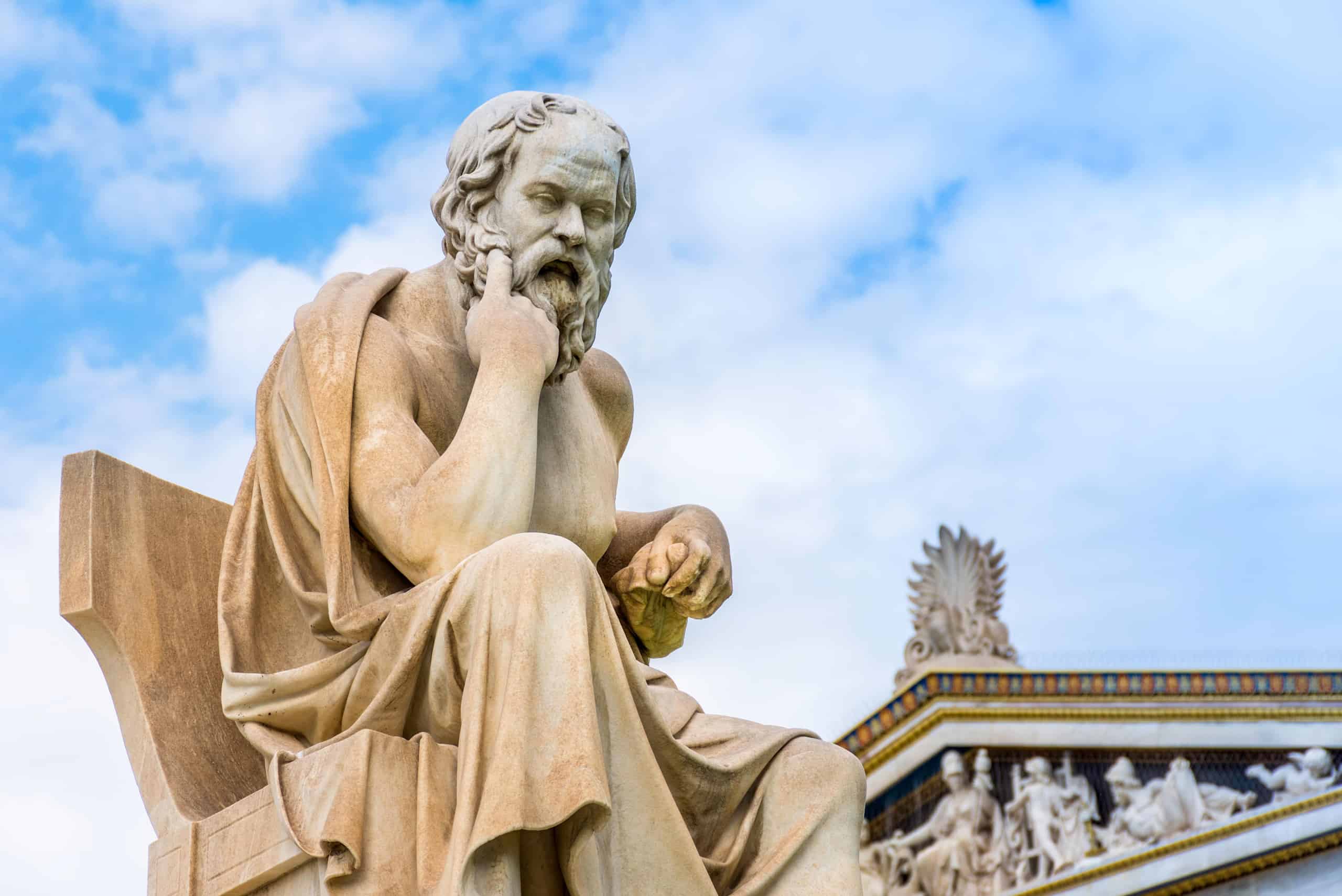Editor’s Note: Yes, Didact has agreed to allow us to cross post content from Didact Mind. We will be posting appropriate materials from that site here at MOTW. Thanks to The Last Redoubt for suggesting that we join forces. We encourage you to be regular readers at both sites.
In the fourth chapter of his superb book, The Great Heresies, the Catholic apologist and debater Hillaire Belloc – of whom I have written very favourably in the past, and with very good reason – explored the Albigensian or Cathar Heresy against the Catholic Church. Make no mistake, this was a deadly heresy against the Word and the Body of Christ. It seduced and deluded thousands of people throughout much of southern France, and eventually the Catholic Church had to call for an Inquisition and a brutal campaign against Catharism to drive away its foulness.
In that chapter, Belloc writes about the various solutions that have been posed to the fundamental problem that faces all of humanity – the Problem of Evil.
I have yet to find a more precise, lucid, and yet complete explanation for the Problem of Evil in all of my readings. As Belloc wrote:
How can we call man’s destiny glorious and heaven his goal and his Creator all good as well as all powerful when we find ourselves subject to suffering and to death?
Nearly all young and innocent people are but slightly aware of this problem. How much aware of it they may be depends upon what fortunes they have, how early they may have been brought into the presence of loss by death or how early they may have suffered great physical or even mental pain. But sooner or later every human being who thinks at all, everyone not an idiot, is faced by this Problem of Evil; and as we watch the human race trying to think out for itself the meaning of the universe, or accepting Revelation thereon, or following warped and false partial religions and philosophies, we find it always at heart concerned with that insistent question: “Why should we suffer? Why should we die?”
Various ways out of the torturing enigma have been proposed. The simplest and basest is not to face it at all; to turn one’s eyes away from suffering and death; to pretend they are not there, or, when they are thrust upon us so insistently that we cannot keep up the pretence, why then to hide our feelings. And it is part also of this worst method of dealing with the problem to boycott mention of evil and suffering and try to forget them as much as one can.
Another way less base, but equally contemptible intellectually, is to say there is no problem because we are all part of a meaningless dead thing with no creative God behind it: to say there is no reality in right and wrong and in the conception of beatitude or of misery.
Another nobler way, which was the favourite way of the high pagan civilization from which we sprang-the way of the great Romans and the great Greeks-is the way of Stoicism. This might vulgarly be termed “The philosophy of grin-and-bear-it.” It has been called by some academic person or other “The permanent religion of humanity,” but it is indeed nothing of the sort; for it is not a religion at all. It has at least the nobility of facing facts, but it proposes no solution. It is utterly negative.
Another way is the profound but despairing way of Asia-of which the greatest example is Buddhism: the philosophy which calls the individual an illusion, bids us get rid of the desire for immortality and look forward to being merged in the impersonal life of the universe.
As you can see, the Problem of Evil is a vexatious and severe one. It is THE problem that confronts all of us. If we, individually and collectively, cannot formulate at least an attempt to solve the problem, then we are utterly at the mercy of the evil of this world, with all of its dreadful suffering, misery, and insanity.
The solution proposed by the Stoics of ancient Greek and Roman philosophy was simple:
Accept the world as it is. Accept that it is broken and flawed and Fallen, and that you can do nothing to fix it. Accept with calmness and fortitude the things that you cannot change, and then work on what you can change.
There are many great Stoic philosophers – the most famous of these was almost surely the Roman Emperor Marcus Aurelius, the last of the Five Good Emperors and perhaps the greatest of them all. His philosophical and calm approach to life is one that every man should listen to and learn from:
As solutions to the Problem of Evil go, this isn’t the worst – but as Belloc pointed out, it wasn’t actually a solution, either.
And that is because there is no solution at all.
Now, compared to the Eastern philosophies of Buddhism and especially Hinduism, Stoicism at least accepts the world as it is, without window-dressing or frills. It simply says, “this is the way things are”, and tells its adherents to get on with life as best as they can within the limitations that they are given.
Compare and contrast that with Hinduism, which leads to fatalism of the worst kind.
Hinduism is a mass of contradictions with no clear Scriptural guide whatsoever. As far as I can tell, if you peel back all of the nonsense and the meanderings and the contradictions, you can eventually arrive at some sort of consensus belief that we are the product of a vast number of reincarnations, and that our situation in the present is a result of actions, good or ill, committed in past lives.
The philosophical consequences of this are quite horrifying, if you stop and think about it.
Basically, if you’re stuck deep in the shit right now, it’s because you deserve it. It’s because your actions in your past lives put you there. All you can do is hope that you will be reborn into a different and better position in the future, but right now, you simply have to suffer because that’s your fate, that’s your destiny.
Other strains and versions of Hinduism propose that the world around us is all an illusion, or maya, and that we can transcend it all to break the eternal cycle of birth-life-death-rebirth and become one with the Universe, or whatever.
Buddhism embraces this particular idea through the notion of enlightenment and nirvana, and evolved as a heresy of Hinduism – before eventually being reabsorbed right back into it, over time.
But that isn’t a way out either.
There is only one way to solve the Problem of Evil. You all know what it is: bend the knee and declare Christ as Lord and King.
This is simply unpalatable to most people. I don’t blame them for thinking this way. It was unpalatable to me too for most of my life.
That doesn’t change the hard reality. The only way to solve the Problem of Evil is to embrace the teachings of the one and only man, who was also God, who defeated evil itself and thereby redeemed a broken and Fallen Creation.
The wisest and most useful alternative is to acknowledge and accept the existence of evil, and to get on with your life knowing that evil is material, real, ever-present, and deadly – and to try to avoid falling into evil patterns of behaviour and thought.
That alternative is, quite simply, Stoicism. And while it has its flaws and its problems, it is easily the least-worst alternative available to us.
This is especially important right now, in this very moment, as we see Western civilisation descending into burning ruin all around us.
The Eastern philosophies have failed, spectacularly. Indeed, if you look at the countries that espouse them, precisely one – Japan – has actually become an advanced and highly cultured civilisation. The rest are incapable of moving beyond the strictures imposed upon them by their belief systems.
The nominally “Christian” West is collapsing into a post-Christian wasteland. There is every reason for us to hope and have faith that new Christian societies will rise from the ashes, but we have to deal with what we’re seeing right now. And what we’re seeing right now indicates that the next few years and decades will be bloody, brutal, and horrifying in the extreme.
The best way to deal with that is simply to accept it. That will be the future, and that will be what we as men will have to deal with. We will have to bring our children up in an environment of fear, uncertainty, and doubt.
It is what it is. Embrace the chaos, embrace the fight, and embrace the struggle. It’s the only way.
And for those of you who, like me, have faith in God the Father of Jesus Christ, well, you know what to expect in the future. Face it with hope and joy, because our tests right now are preparing us for even greater tests in the future – and for something wonderful that will come after those tests are done:
The Kingdom of Our Father.









